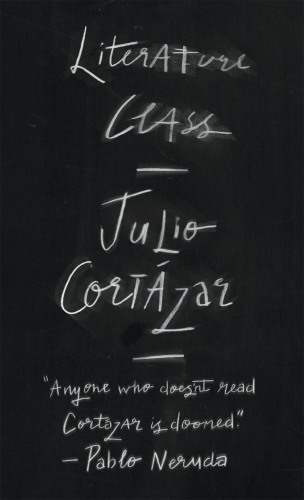
Literature Class, Berkeley 1980
کتاب های مرتبط
- اطلاعات
- نقد و بررسی
- دیدگاه کاربران
نقد و بررسی

January 30, 2017
Between October and November 1980, the late Argentine novelist Cortázar taught eight classes at UC Berkeley. Available for the first time in English through Silver’s agile translation, Cortázar’s sometimes stimulating and sometimes pedantic lectures cover topics that include literature‘s relationship to politics and music and the differences between realistic and fantastic fiction. In the first and most thought-provoking lecture, written in 1980, Cortázar begins by admitting that he has “always written without really knowing why” before listing stages he’s passed through as a writer: aesthetic, metaphysical, and historical (the last of which he still finds himself in). He’s less engaging in the lectures that discuss time and fate and attempt to define literary realism. He perfunctorily concludes that the difference between realism and fantasy is that the former places a greater emphasis on plotting and plausibility. Cortázar breezily tells one class that he began Hopscotch, perhaps his best-known novel, without a “precise literary architecture” but instead as a kind of “approximation” that “little by little found its form.” Though students’ questions from each class are included, these transcripts nevertheless lack the vitality of spoken exchanges and will most appeal to confirmed Cortázar fans.

February 1, 2017
A collection about the art of fiction.After the influential Argentinian writer Cortazar (1914-1984) had written his greatest and most significant works, he accepted a position at the University of California in 1980 to deliver a series of classroom talks. The first one, "A Writer's Paths," is autobiographical. He confesses that he's "not systematic, I'm not a critic or a theorist, which means I look for solutions in my work as problems arise." He passed through three stages as a writer: the aesthetic, when he was reading extensively, including Borges, who was for him a "literary heaven"; the metaphysical, which was a "slow, difficult, and very basic inquiry...into man [and his]...destiny"; and, finally, the historical, during which he realized that he had to confront his Latin American roots, its history and politics. Other talks take up the topic of the fantastic, referencing writers like Ambrose Bierce, W.F. Harvey, and Oscar Wilde. Two talks explore Cortazar's Hopscotch, A Manual for Manuel and Fantomas. He goes into great detail about how he wrote his stories and novels and reads extensively from them, sometimes entire stories. There are some tips/advice for young writers to consider, but not very much. Cortazar had some notes, but generally these talks are delivered extemporaneously. Though impressive, sometimes they ramble and lose their way, and sometimes they just get dull. Because the lectures are transcribed as is, the book would have benefited from some judicious editing--e.g., leaving out matters concerning office hours. Some kind of introduction would also have been useful. In every talk (during and after), Cortazar takes questions from the students, which are included. His responses are carefully thought out, some going on for pages. It's great to have these insights from the author himself about his writings, but it's a bumpy ride for all but a small, scholarly audience.
COPYRIGHT(2017) Kirkus Reviews, ALL RIGHTS RESERVED.

























دیدگاه کاربران